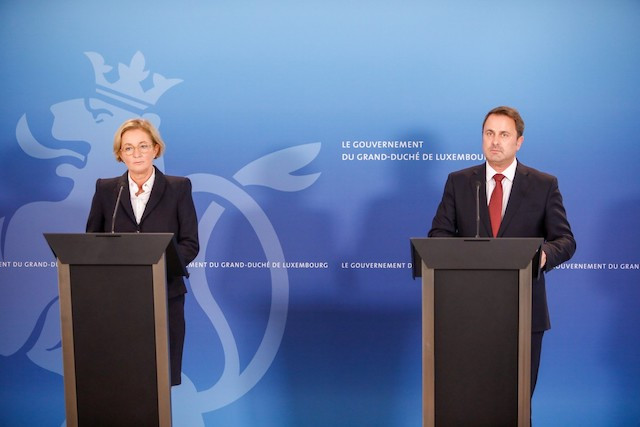The grand duchy’s current coronavirus restrictions will expire on 21 February and the government on Friday decided to keep the measures in place until 14 March. A law will be introduced in parliament over the weekend, so that lawmakers can vote the text in time.
The current rules also state that only two people from the same household can visit someone else at home. Groups of more than four people meeting outdoors must wear masks and keep 2 metres of distance. Groups of more than ten must be seated and gatherings of more than 100 are banned, except for protests.
Restaurants and bars will only be able to offer take-out or delivery services, drinking alcohol in public remains banned and restrictions will also remain in place limiting the number of customers that can enter a shop.
“We are in a critical situation,” said health minister Paulette Lenert. Even though there are fewer deaths and the number of people in hospital is comparatively low, the presence of new virus variants poses a risk, she said.
The covid-19 task force, a group of Luxembourg-based researchers, in a report published on 12 February said the situation was volatile. “Considering the more contagious UK virus variant indicates a substantial danger of an epidemic rebound.”
More support for businesses
Prime minister Xavier Bettel said the government had chosen to follow a preventive approach, but also announced more support for businesses that have to stay closed because of the pandemic or are incurring substantial revenue losses because of the restrictions.
Further details will be announced by Lex Delles, the minister for small and medium-sized enterprises, on 15 February. The announcement to grant more support follows a series of protests by restaurant and bar owners and workers.
Opening up the sector, however, is out of the question for now for the government, which once again cited close, convivial contact in private or at work as a main driver for the virus spreading. Since eating and drinking requires masks to be removed it will remain forbidden in cinemas, shopping centres and other indoor venues.
Luxembourg’s vaccination campaign should enter its second phase within the next two weeks, Lenert said, but authorities will continue saving the second dose amid uncertainty over deliveries.
The grand duchy keeps in stock as many vaccine doses as it needs to guarantee everyone who received the first jab will also receive the second. This is partially to blame for the country’s slow roll-out.
The arrival of the AstraZeneca vaccine--which is not administered to anyone aged 65 or over due to findings it is not as efficient in the elderly--could mean that later vaccine campaign phases will start in parallel.
International cooperation
The health minister revealed that she was scheduled to speak with France’s Olivier Véran later today to discuss the worrying rise of coronavirus infections caused by the UK and South Africa variants in the Grand Est region, and specifically the Moselle department.
She said they would discuss how the countries could better share testing data and sequencing information.
Germany’s Saarland region on Friday said it is considering closing its borders to France and Luxembourg over the mutations. Germany on Thursday said it would introduce border checks with the Czech Republic and Tirol in Austria over rising case numbers.
Bettel said that talks were ongoing between Luxembourg and the Saarland, adding that closing borders isn’t a solution.
In an effort of cooperation, Luxembourg will also be sending a medical team--one doctor and one nurse--to Portugal this weekend for a period of two weeks to support the country’s overwhelmed healthcare system. Another team could follow, Bettel said. Germany earlier this month flew medics out to Portugal while Austria said it would airlift patients to its hospitals.
Portugal in January recorded the world’s highest infection rate and deaths per million. Intensive care units are under strain and health officials this week urged the government to extend the country’s lockdown until Easter to bring the surge under control.
